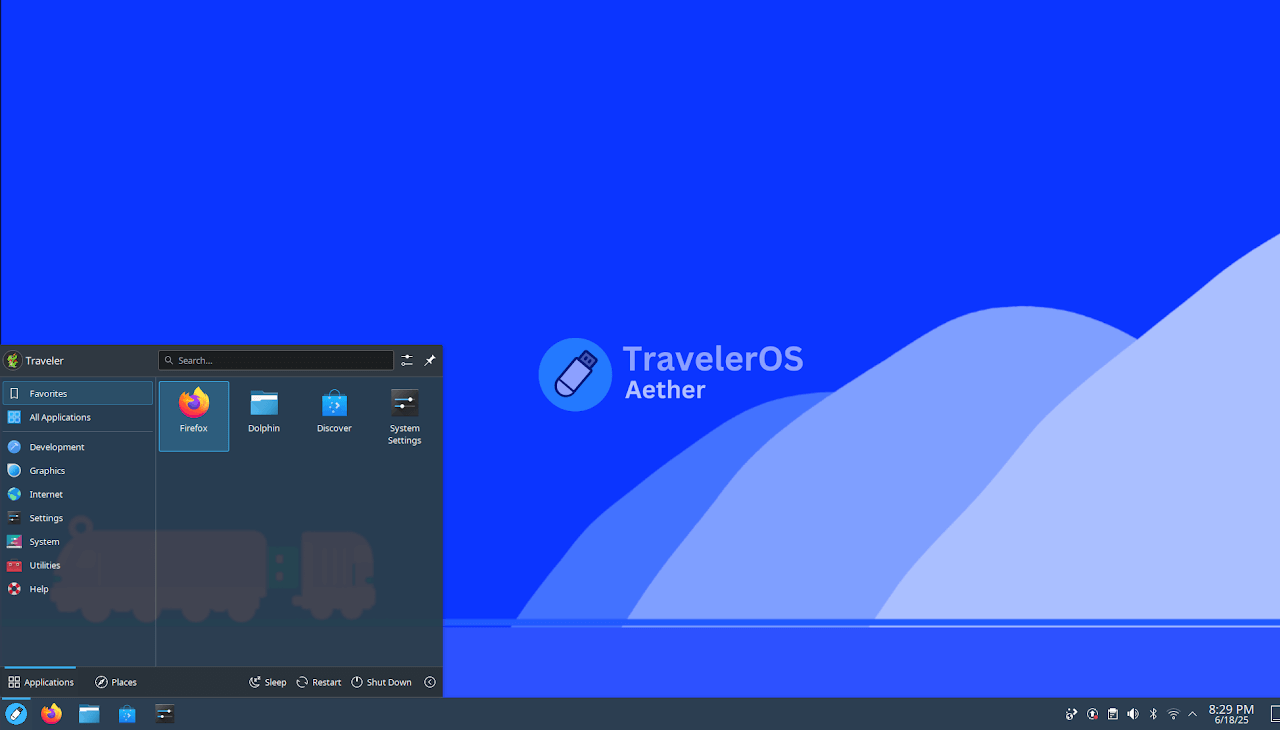TravelerOS is a lightweight and stable Linux distribution based on Q4OS, which is Debian based.
It is built for USB drives, and not hard drives. TravelerOS comes with KDE Plasma 5, not 6.
TravelerOS is customized to be a portable linux distribution meant for USB drives, although you could boot it from a CD, or SD card, if possible. TravelerOS is also lightweight, only taking up 700 MB of RAM. TravelerOS is also very customizable, thanks to KDE Plasma, with that, you can customize the start menu, the panel, the window, the icons, anything! Since TravelerOS is portable, even if you boot the USB drive in a different computer, it still works the same!
TravelerOS is meant for users who want to try/use Linux, without installing it to the hard drive, meaning that you can store apps, games, documents, and other stuff without it erasing on reboot. TravelerOS is also meant for users who need help with their hard drive or their current operating system, like fixing the bootloader, partitioning the disk, removing a partition, or erasing the whole disk.

| Working state: | Active |
| Desktop: | KDE Plasma |
| Init Software: | systemd |
| Package Management: | APT |
| Release Model: | Fixed |
| Platforms: | x86_64 |
| Home Page: | sites.google.com/view/traveleros |
| Developer: | TravelerOS |
| This article is part of our Big List of Active Linux Distributions. |
What's a Linux distribution ("distro")? |
| A distro provides the user with a desktop environment, preloaded applications, and ways to update and maintain the system. Each distro makes different choices, deciding which open source projects to install and provides custom written programs. They can have different philosophies. Some distros are intended for desktop computers, some for servers without a graphical interface, and others for special uses. Because Linux is an open source operating system, combinations of software vary between Linux distros. |

